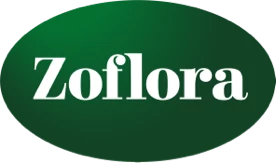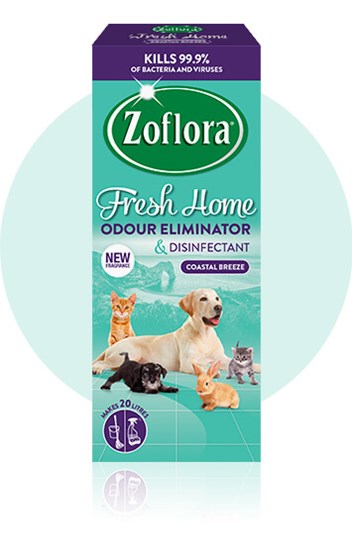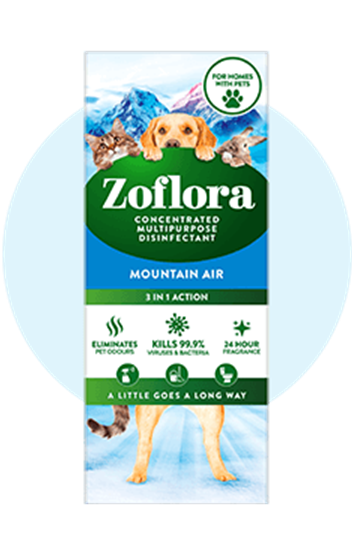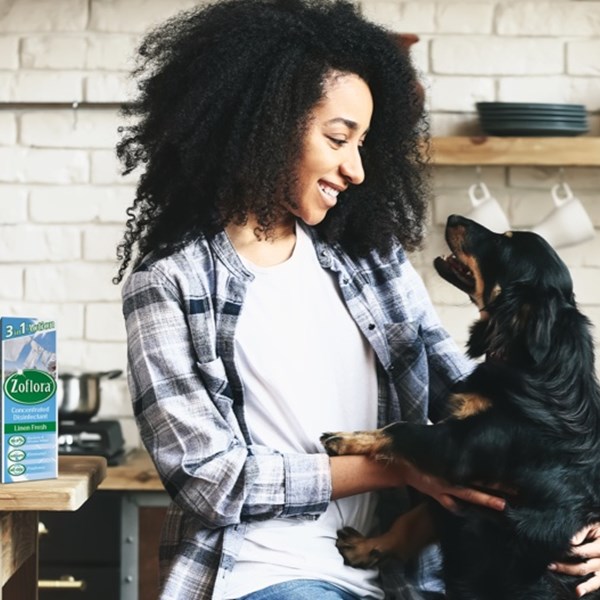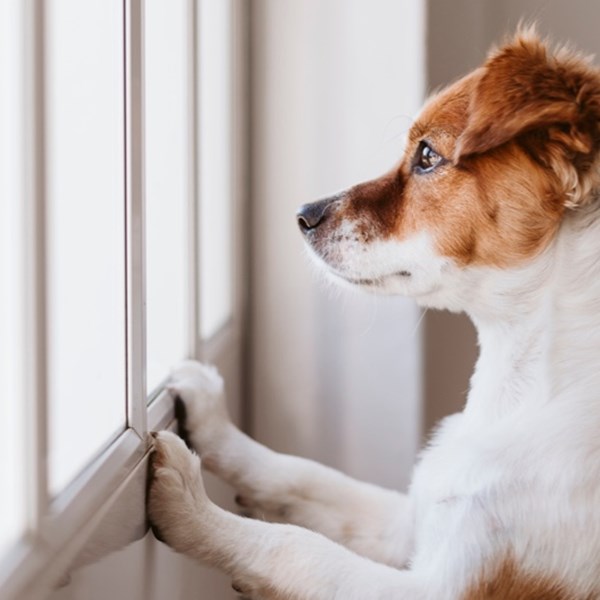Cat the Vet’s Guide to Avoiding Pet Problems at Christmas!
Christmas is a crazy time of year! The house is full of extra food, decorations, gift wrap, presents and, often (but maybe not this year!) people. It can be very hard to keep an eye on everything and maintain a tidy and organised home!
And the absolute last thing you want is an emergency trip to the vets because your pet has got themselves into a festive fandango!
So, here are a few of the most frequent reasons why I see my patients at this time of year and how you can avoid them!
Chocolate
This is the most common poisoning we see in pets at Christmas. The ingredients toxic to them are the cocoa solids, and the darker the chocolate, the higher these are. This means that white chocolate is more or less safe (but will cause tummy upsets, so please don’t give it to them!), milk chocolate can be problematic but it depends on how much they eat, and dark chocolate is the one which most often causes problems, particularly in small dogs because the toxic dose is weight dependent.
Chocolate is everywhere at this time of year and although it is hard, it is really important to keep it out of the reach of curious noses. Don’t put any edible gifts under the tree because our pets will have no problem in helping themselves, also remember to hang any chocolate decorations well out of their reach and make sure any bowls of (human!) treats are not placed anywhere they could be snaffled.
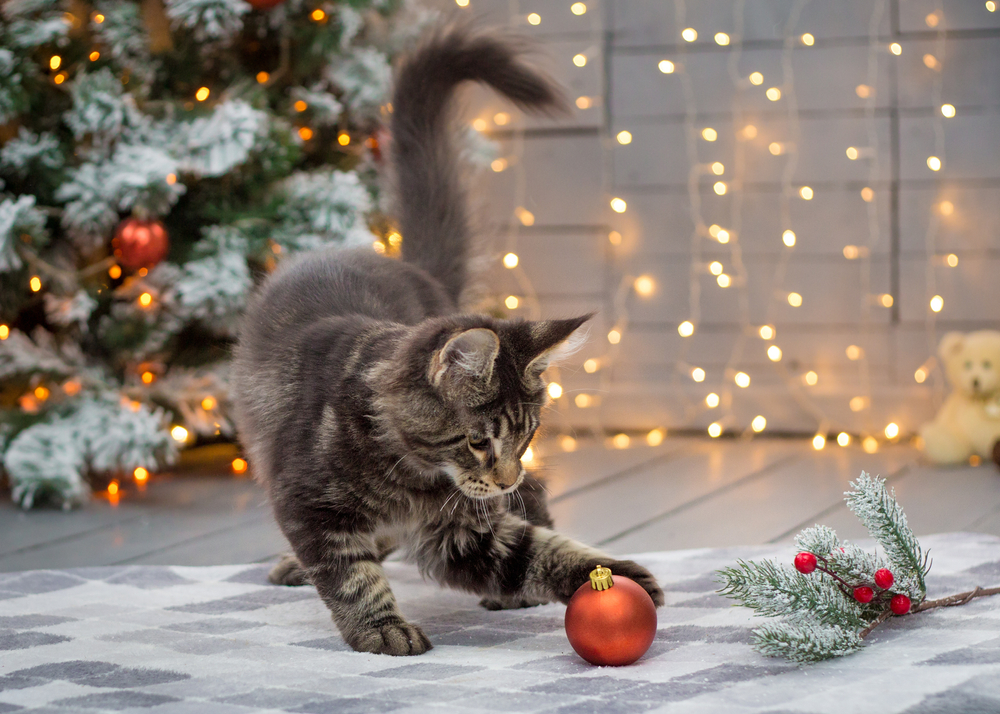
If your pet does manage to eat chocolate, keep the packaging and call your vet straight away. We will ask you for the amount of cocoa solids present, this will be on the ingredient list, and then calculate if the amount eaten is going to be problematic or not.
If you miss the present raid and come across your pet looking guilty a few hours later, it is still not too late to phone for help. Chocolate acts as a huge stimulant to our pets, like a major caffeine hit, so signs to look out for include panting, pacing, agitation, shaking, vomiting, diarrhoea and even fitting.
Treatment for chocolate toxicity normally includes making animals vomit, giving them detox meds and potentially hospitalising them on a drip for severe cases.
Alcohol
This is an obvious one, but even with the best of intentions, we can get caught out! Think about how many things contain alcohol at this time of year and also how it doesn’t often taste very alcoholic. Creamy drinks like Bailey’s for example, could be attractive to cats, especially if they are left out on the table after a long day of celebrating!
Alcohol can cause our pets to be very poorly as they are far more sensitive to its effects than we are.
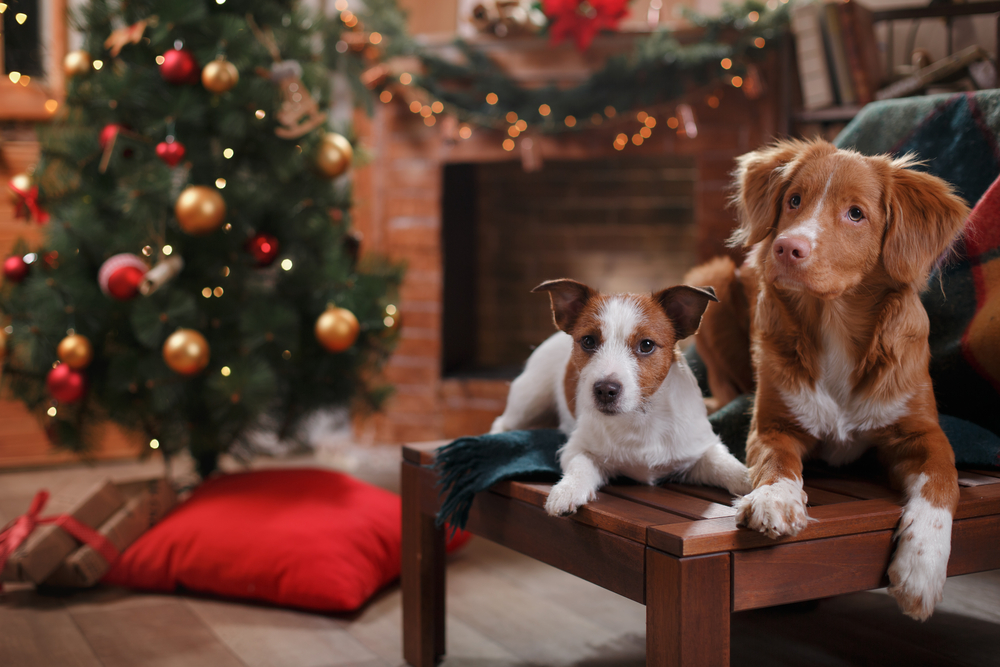
Raisins
The fact that raisins and grapes are problematic for our pets is luckily becoming common knowledge, but equally many people take this information with a pinch of salt because they have fed them to pets as treats and never seen an issue.
This is because of how a pet reacts to grapes or raisins is very individual and we don’t actually know the mechanism by which they cause a problem. Current theories revolve around it being some sort of fungus on the surface of the fruit, which could explain why some dogs are fine and others very sick, even if they eat only a small amount.
However, poisoning does occur and can lead to kidney damage, which can be extremely serious. Your vet will discuss the risks and options with you, but in most cases, pets need blood tests, medications, and potentially a prolonged hospital stay on a drip.
So, this is definitely one where prevention is better than cure! Make sure to keep all the Christmas cake, pudding, mince pies and other festive sweet snacks well away from your animals.
Batteries
We all know that batteries shouldn’t be eaten, but our pets don’t know that, and sometimes they do eat them!
Smaller AA / AAA batteries can actually pass through the system without too many problems, provided they aren’t punctured, which they often are because of the tendency to be chewed before they go down. Even then, it is possible they will pass through the system and just supportive care is required but some will need surgical removal.
The button batteries are the really concerning ones here, they can generate a current when they come into contact with flesh and cause horrible internal burns and damage.
It’s hard in the craziness of present unwrapping and setting up to keep an eye on all the batteries included, but it is extremely important!
Human Food
Of course, we all want to spoil our pets at Christmas and involve them in the festivities. They absolutely should have some gifts under the tree and they can certainly join in with Christmas dinner - as long as they aren’t given anything too rich!
We often underestimate how difficult to digest our food is for animals and most of the things on our plates at this time of year will be loaded with fats and calories that they just aren’t used to dealing with. Which means that sharing like-for-like will only result in an upset tummy and you cleaning up vomit or diarrhoea on Boxing Day!
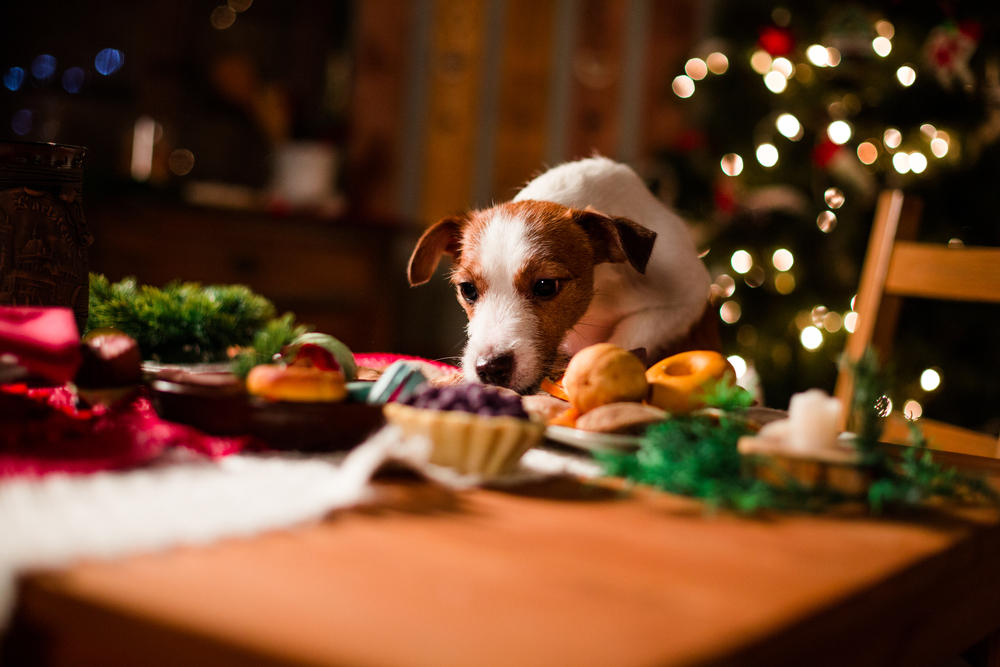
Also, onions, leeks and garlic are actually toxic to pets and can cause the red blood cell levels to drop, so avoid anything containing these vegetables, either in their natural or powdered form.
So, while you tuck in to pigs-in-blankets, roast potatoes and lashings of gravy, offer your pets a small bowl of lean meat and some plain vegetables. They will enjoy their meal just as much as you do yours, but without any of the regret the next day!
I, and the whole team at Zoflora, wish you, your family and your pets a very happy Christmas and a wonderful 2021!
